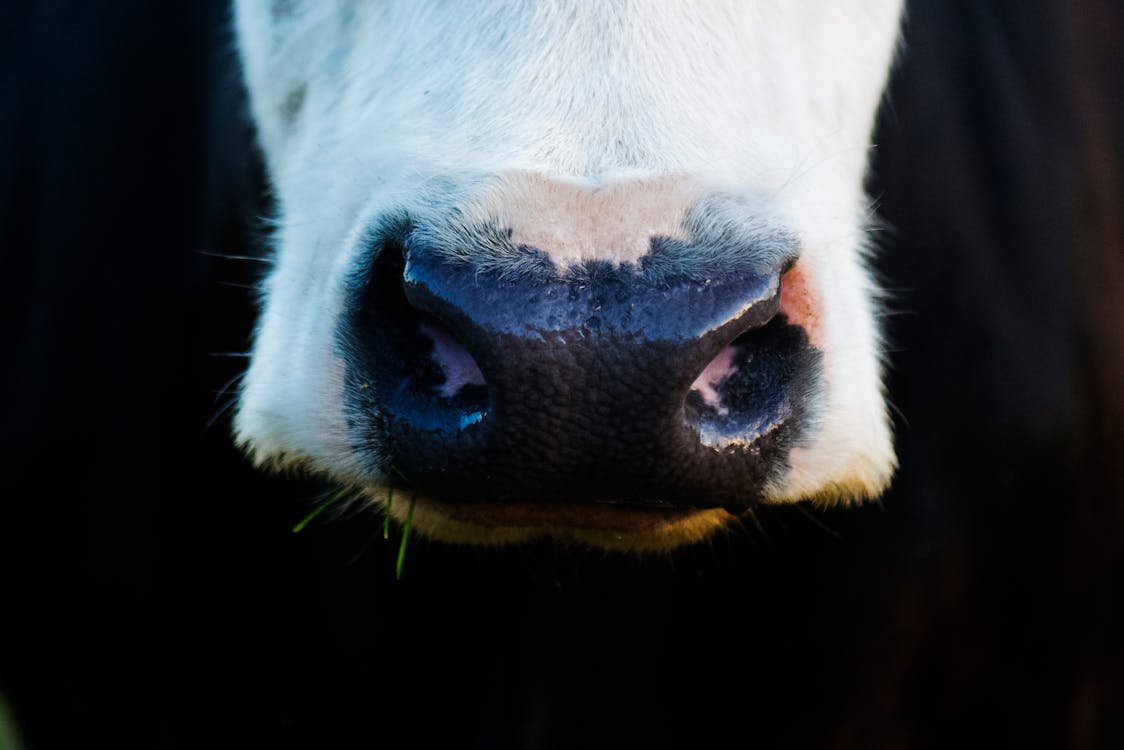Rabies is a deadly virus that is commonly known for its association with dogs, but can be carried by various animals such as bats, raccoons, skunks and foxes.
It is a very serious disease that poses a risk not only to domestic pets but also to humans, and is found in almost every part of the world.
Once contracted, the virus affects the central nervous system, leading to symptoms such as fever, headache, muscle weakness, and ultimately, death if left untreated.
It is important to be aware of the signs and symptoms of rabies, as well as how to prevent it.
Vaccination of domestic pets, including dogs and cats, is an important step in reducing the transmission of the virus to humans and other pets.
The best way to avoid the disease is to avoid contact with wild animals and seek medical attention immediately if bitten or scratched by an animal that may carry rabies.
Read on to learn more about symptoms of rabies, how the virus spreads and what to do if you’ve been near an animal suspected of having the rabies virus.
What Is The Rabies Virus?
Rabies is a devastating viral infection that can have serious consequences for both animals and humans.
It is caused by the rabies virus, which can be transmitted through the saliva of infected warm blooded animals, including humans.
Once the virus enters the body, it leads to inflammation of the brain and can cause a range of symptoms, such as fever, headache, muscle weakness, and aggression.
Unfortunately, there is no cure for rabies, and the disease is usually fatal once symptoms develop. If you have been exposed to rabies, it is vitally important to contact a healthcare professional immediately and wash any bites or scratches with soap and water. You must get help straight away and treated before symptoms appear as rabies is almost always fatal. Therefore, it’s incredibly important to take precautions and protect yourself and your pets from exposure to potentially infected animals.
Symptoms Of Rabies
Rabies is a serious viral disease that can be deadly if left untreated.
The symptoms of rabies can initially mimic flu like symptoms, such as headaches, fever, and muscle aches.
However, as the disease progresses, symptoms become more severe and can include confusion, hallucinations, and seizures.
In some cases, individuals may display violent behaviour and excessive drooling, making it difficult to swallow.
It’s important to seek medical attention immediately if you suspect that you may have been exposed to rabies, as early treatment can be life-saving.
Remember, prevention is key, so be sure to vaccinate your pets and avoid contact with wild animals.
How To Prevent Rabies Virus
One of the best ways to prevent the spread of this disease is to ensure that pets are vaccinated against it.
This means making sure that dogs and cats receive their rabies shots on schedule, and keeping up to date with booster shots as recommended by your veterinarian.
Another important step in rabies prevention is to avoid contact with wild animals, such as raccoons or bats, which can carry the disease.
If you come into contact with a stray animal or an unvaccinated pet, it’s important to seek medical attention right away in order to reduce the risk of infection.
Following these guidelines can help keep you and your furry friends safe from this dangerous disease.
Is There A Cure For Rabies?
While there is no one cure for rabies, there is a post-exposure prophylaxis, or PEP, that can be given to people who have been bitten by an infected animal.
This includes a series of injections that is typically given over a 2-week period. It is crucial that PEP is administered as soon as possible after exposure to increase its effectiveness.
Despite the availability of PEP, prevention is the best way to avoid rabies altogether. Avoid contact with wild animals, ensure that your pets are vaccinated, and report any potential exposure to a healthcare provider immediately.
How Rabies Affects Humans
Rabies is a deadly virus that during the acute neurologic phase, affects the brain and spinal cord of humans and other animals.
It is typically transmitted through the bite of an infected animal, with rabid dogs being the most common cause.
Rabies symptoms can take days, weeks or even months to appear, and they can include fever, headache, muscle weakness, and muscle spasms.
As the disease progresses, rabies leads to aggression, hallucinations, and paralysis before ultimately causing death.
Although some people develop immunity to rabies after being bitten, this is rare and treatment is crucial to prevent the virus from spreading and becoming fatal.
In short, it is important to take animal bites seriously and seek medical attention if there is any chance of exposure to rabies.
How The Rabies Virus Is Treated Before Symptoms Develop
It is critical to take precautions in the event of a potential rabies exposure.
You should never approach wild animals, as they are most commonly the ones infected with the virus.
But, if you do come in contact with an infected animal and get licked, bitten or scratched, it is crucial to take action immediately.
Treatment should begin before symptoms develop.
First, you will need an antibody treatment. Then, an immune globulin is injected into the infected wound. This can help prevent the virus from spreading through the body, giving a high chance of recovery.
If you suspect you have been exposed to a Rabies Virus, don’t hesitate to seek medical help as soon as possible.
Different Types of Rabies Virus
Rabies is a viral disease that any mammal can get, including humans.
There are two different types of the rabies virus that can cause different symptoms.
Paralytic rabies is a type of the virus that causes muscle weakness, leading to difficulty moving and eventually paralysis.
Furious rabies is the more common type and is characterised by aggressive behaviour, confusion, and hallucinations.
Both types can be fatal if untreated, making it crucial to seek medical attention if exposed to an animal carrying the virus.
Knowing the differences between these types can help identify potential cases early and ensure proper treatment is administered.
How To Protect Small Pets and Domestic Animals

As pet owners, we want to make sure that our furry friends are always safe and protected from any illnesses.
One of the most dangerous diseases that our pets can get is rabies. Rabies can be transmitted to animals, including pets and domesticated animals, through bites from a wild animal.
The best way to protect your small pets from the rabies virus is to make sure they have their rabies vaccines.
If you live in an area where wildlife is prevalent, such as in the countryside, it is essential to keep your pets indoors or supervised when outside.
Avoid letting your pets come in contact with wild animals such as raccoons, bats, and foxes, which are known to be carriers of the rabies virus.
By taking these preventative measures, you can ensure that your furry friends remain happy, healthy, and protected from this deadly disease.
Protecting Your Dog From Rabies

Rabies is a viral disease that can affect both human and animal health and dogs are one of the most common carriers.
To protect your dog from rabies, it is vital to ensure that they receive the proper vaccinations.
These vaccines can help boost their immune system and protect them against the disease.
Additionally, keep your domestic dogs away from wild animals that may carry the virus such as raccoons, bats, and skunks.
If your dog has been bitten or scratched by a wild animal, take them to the vet immediately for veterinary care. With the right precautions, you can protect your dog from rabies and ensure they live a long and happy life.
If You Suspect Your Farmyard Animals Have Been Exposed To The Rabies Virus

If you suspect that your farm animals have been exposed to the rabies virus, it’s crucial to act quickly.
Contact your veterinarian right away, and describe any unusual behaviour that you have noticed in your animals. Isolation may be necessary make sure they do not spread rabies even further. You or your veterinarian should also call disease control to stop the rabies infection spreading.
While it’s essential to protect your livestock, it’s also important to protect yourself. Do not handle animals that may have been exposed to rabies without wearing personal protective equipment, such as gloves and a mask.
By acting quickly and taking the necessary precautions, you can protect both your animals and yourself against the deadly disease.
If You Spot A Rabid Animal
If you see a rabid animal, it’s important to act fast and take appropriate safety measures. Do not approach the animal.
The first step is to call your local animal control officials immediately. They are trained to handle these situations and will be equipped to safely capture the animal.
You should also contact disease control to ensure that proper procedures are followed to prevent the spread of rabies.
It’s crucial to remember that rabies is a serious disease that can be fatal if left untreated, so it’s important to take the situation seriously and seek assistance as soon as possible.
It may also be beneficial for you and your community to report stray animals in the area.
The Importance Of Rabies Vaccinations

Rabies is a dangerous and potentially deadly virus that can be transmitted through the bite or scratch of an infected animal.
While many people may associate the disease with dogs, the virus can also be found in other animals such as raccoons, bats, and even some domesticated animals like cats.
Getting vaccinated against rabies is essential and especially important for those who may be at risk of exposure, such as veterinarians, animal handlers, or those who spend time outdoors. The vaccine is a safe and effective way to protect against the virus and can prevent unnecessary suffering and loss of life. Don’t take any chances with your health – talk to your doctor or local health department about getting vaccinated today.
Rabies Vaccine If You Are Travelling

Travelling to new and exciting destinations can be an exhilarating experience, but it’s important to consider your health and safety when planning your trip.
One vaccine that is often overlooked by travellers is the rabies vaccine.
While it may not be required in all countries, it’s important to consider getting vaccinated if you plan on spending time in rural areas or engaging in activities that may put you at higher risk for exposure to rabid animals.
Rabies is a serious disease that can be fatal if left untreated, so taking proactive measures to protect yourself while travelling can provide peace of mind and ensure a safe and enjoyable trip.
Don’t let a preventable illness ruin your adventure or your life – talk to your healthcare provider about getting vaccinated against rabies.
Conclusion

In short, it is vitally important to receive medical care and the correct rabies treatment immediately if you or a loved one has been exposed to the rabies virus. Even if you have dog bites or another animal bites from a domestic pet or zoo animal.
Be sure to contact the local authorities to report any rabid animals and never approach injured animals, wild animals and especially stray dogs. Be sure to receive a rabies vaccine if you work outdoors, with animals or are going travelling.
It is important to prevent rabies as contracting rabies is commonly fatal if not treated straight away.
